News
[Interview] Screenwriter Mark Bomback – War for the Planet of the Apes
Mankind moves closer to its demise in War for the Planet of the Apes, the third film in the Planet of the Apes reboot series. The architects of mankind’s destruction, and the continued rise of the apes toward global dominance, are director Matt Reeves and screenwriter Mark Bomback, whose collaboration began with 2014’s Dawn of the Planet of the Apes. For Bomback and Reeves, the challenge, and the excitement, of connecting the prequel series to the original 1968 film, isn’t based on the knowledge of what’s going to happen but rather the how and why.

In June, I had the chance to talk to Bomback about how he and Reeves constructed the screenplay for War for the Planet of the Apes and how this third prequel film fits into the overall Apes mythology.
DG: Mark, what were the key decisions that you and Matt made prior to the writing of this screenplay, in terms of the direction you wanted to take with this third film?
MB: Actually, before sitting down to write, Matt and I both agreed that nothing was off the table in terms of where the story could go. We knew, of course, that whatever the narrative was, it was going to center on Caesar and ideally set him on a path that takes him to places we’d yet to explore, but it would also continue his larger trajectory from accidental revolutionary to the leader of an entirely new civilization. We often say that these stories aren’t so much about where they’re ultimately going – we all know it’s called Planet of the Apes, not Planet of the Humans – but how they arrive there.
DG: How has the conflict between the apes and humans evolved between the end of the last film and the beginning of this film, and how have Caesar and the rest of the apes evolved?
MB: Well this new film is set two years after Dawn, and we quickly come to understand that in the interim the apes have been engaged in a near constant state of warfare. They’ve had to retreat to the woods and establish a new, clandestine home for themselves. The humans they’ve been fighting are relatively new arrivals to the world of our film, having been contacted at the end of the last film by Gary Oldman’s character. They’re much less ragtag than the human adversaries in Dawn – these are all military-trained men and women who have developed a kind of “kill or be killed” attitude toward the apes, who they insist on seeing as savage animals despite all evidence to the contrary. Under the leadership of The Colonel, to whom these soldiers have an almost cultish devotion, they believe themselves to be on a noble mission to save the human species. That kind of fervor can allow people to commit all sorts of atrocities in the name of doing what they believe is for the greater good.
In terms of the apes’ evolution, they’ve had to adapt to life during wartime, as I mentioned earlier. But they’ve also managed to evolve further as a species. You’ll find that Caesar has become even more articulate, and speech is peppered a little more into the ape community’s sign language. They’ve also continued to learn what it means to be parents and spouses and comrades-in-arms; I think you sense a lot more depth to all of their interactions.

DG: Mark, when I visited the set in December 2015, the footage of Caesar revealed to me that Caesar had lost his humanity. Question: How would you describe the state of Caesar’s relationship with humanity in this film, both his own humanity and the actual human race?
MB: Caesar’s internal struggle with his feelings toward humanity is one of the reasons we felt War was such an appropriate title for this film – Caesar is very much at war with himself. Remember, Caesar is the only ape who has a genuine love for humans, because of his history with characters like Will and Malcolm and Ellie in the previous films. When War begins, however, Caesar is already on the cusp of losing faith in humankind’s continued capacity for decency. The soldiers are just relentless. And soon events transpire that finally push Caesar to a place where he breaks with humanity once and for all. For the first time, he comes to understand what true hatred feels like, and it’s a terrifying journey for us to witness.
DG: Mark, while Dawn of the Planet of the Apes was a very contained, gritty film, War for the Planet of the Apes has been described as being an epic western film. Question: How would you describe the scale and tone of this film, and what were the notes and the themes that you wanted to inject into this story?
MB: The scale is certainly grander than in the previous films – far more epic than any film I’ve ever worked on, really. If Caesar is destined to become his people’s Moses, then we knew we should try to push the storytelling, the settings, and the ideas to a more mythic place. The trick was to make it feel connected to the last film tonally, but also move into a more sweeping, almost biblical direction. As for the theme, as I said earlier, the central theme in this film is the war within us all, the inevitable struggle between the drive for survival and the maintenance of one’s moral compass.
DG: Mark, how would you describe Woody Harrelson’s character, the Colonel, his mission, his point-of-view, and what kind of obstacle does he represent for Caesar in the film?
MB: Without giving too much away, I’ll say that the Colonel is in many ways the perfect foil for Caesar. He is someone who has grappled with the costs of war as well, and who has ultimately chosen to abandon his morality in order to prevent what he believes will be the extinction of his own species. He has evolved (or devolved) to a place where no action is deemed inexcusable if it means the survival of humankind. And Caesar comes to question if that sort of grim resolve is actually necessary to survive. Bottom line, there’s a bit of a “there but for grace of God goes Caesar” to the Colonel’s character.
DG: Mark, what does this third film represent within the prequel series, and what sets this film apart from the previous two films, and all of the other Apes films?
MB: That’s really a bit difficult to answer without treading into spoiler territory. I’ll simply say that this film marks a very significant step toward the world of the original 1968 Planet of the Apes film. What sets it apart, in my opinion, is the ambition of the storytelling, the even more incredible nuances of the performances – and of course the brilliance of the mo-cap work. The folks at Weta have truly outdone themselves this time around. It’s pretty astounding.
DG: What was the biggest challenge you faced in making this film, telling this story?
MB: The biggest challenge was ensuring that this film mark a significant step forward in every way. At the risk of sounding immodest, I really loved Dawn, as did Matt. We were keenly aware of certain things we wished we could have improved, but on the whole it succeeded in a way that makes me very proud. When we set down to figure out the narrative for War, Matt and I both agreed that if we weren’t totally confident that this was a better story than either of the two films that preceded it, then it wasn’t worth telling. The road to mediocrity is paved with three-quels that thought they could simply coast, and we were anxious to avoid that. We were determined to be as ambitious as possible, to entertain every crazy idea we had and really go for broke. I hope we’ve succeeded.
DG: Mark, as Alien: Covenant represented a major leap toward Alien, in terms of the Alien prequel series, what is the proximity between this film and the 1968 film, which is, theoretically, the ultimate destination?
MB: I’m afraid to answer that would be to spoil the film. Sorry!
DG: Mark, it’s been said that ending to this film would function as a satisfactory ending to the series, if the decision was made not to make more films. Question: Do you agree with this, and have you and Matt established a rough framework for more films, and if you were told that the next film, the fourth film in the prequel series, were, in fact, the last film, how excited, and prepared, would you be for the challenge of ending this series?
DG: Gosh, I don’t mean to sound coy, but I’m afraid I’m not totally comfortable answering that either or even speculating on exactly what the next film or films could or couldn’t accomplish. What I will say is that it’s an incredibly rich and inspiring world, and I’ve been really privileged to explore it over the course of these films thus far.
Listen to the 'Eye On Horror Podcast'

Movies
Another Creepy Spider Movie Hits Shudder This Month
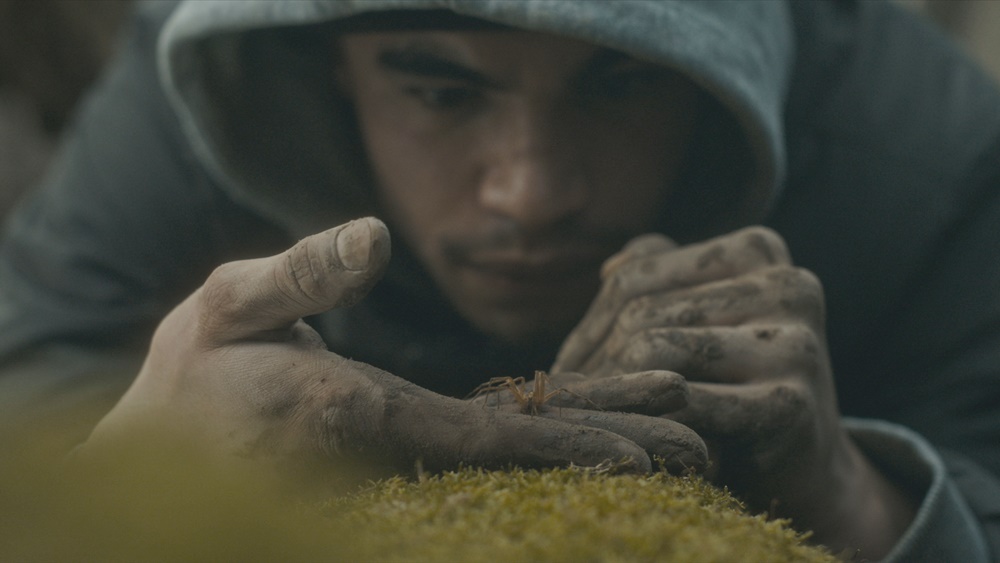
Good spider films are a theme this year. First, we had Sting and then there was Infested. The former is still in theaters and the latter is coming to Shudder starting April 26.
Infested has been getting some good reviews. People are saying that it’s not only a great creature feature but also a social commentary on racism in France.
According to IMDb: Writer/director Sébastien Vanicek was looking for ideas around the discrimination faced by black and Arab-looking people in France, and that led him to spiders, which are rarely welcome in homes; whenever they’re spotted, they’re swatted. As everyone in the story (people and spiders) is treated like vermin by society, the title came to him naturally.
Shudder has become the gold standard for streaming horror content. Since 2016, the service has been offering fans an expansive library of genre movies. in 2017, they began to stream exclusive content.
Since then Shudder has become a powerhouse in the film festival circuit, buying distribution rights to movies, or just producing some of their own. Just like Netflix, they give a film a short theatrical run before adding it to their library exclusively for subscribers.
Late Night With the Devil is a great example. It was released theatrically on March 22 and will begin streaming on the platform starting April 19.
While not getting the same buzz as Late Night, Infested is a festival favorite and many have said if you suffer from arachnophobia, you might want to take heed before watching it.
According to the synopsis, our main character, Kalib is turning 30 and dealing with some family issues. “He’s fighting with his sister over an inheritance and has cut ties with his best friend. Fascinated by exotic animals, he finds a venomous spider in a shop and brings it back to his apartment. It only takes a moment for the spider to escape and reproduce, turning the whole building into a dreadful web trap. The only option for Kaleb and his friends is to find a way out and survive.”
The film will be available to watch on Shudder starting April 26.
Listen to the 'Eye On Horror Podcast'
Movies
Part Concert, Part Horror Movie M. Night Shyamalan’s ‘Trap’ Trailer Released
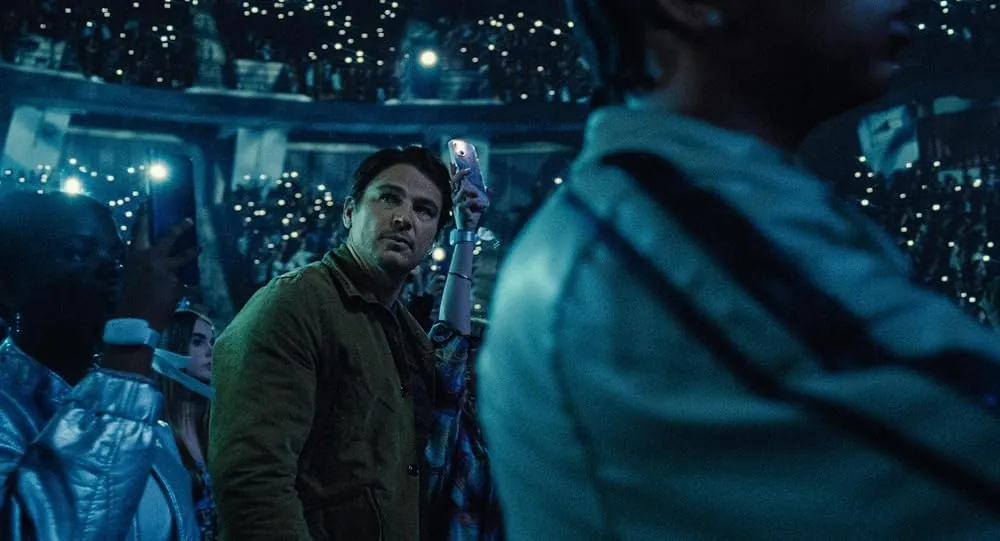
In true Shyamalan form, he sets his film Trap inside a social situation where we aren’t sure what is going on. Hopefully, there is a twist at the end. Furthermore, we hope it’s better than the one in his divisive 2021 movie Old.
The trailer seemingly gives away a lot, but, as in the past, you can’t rely on his trailers because they are often red herrings and you are being gaslit to think a certain way. For instance, his movie Knock at the Cabin was completely different than what the trailer implied and if you hadn’t read the book on which the film is based it was still like going in blind.
The plot for Trap is being dubbed an “experience” and we aren’t quite sure what that means. If we were to guess based on the trailer, it’s a concert movie wrapped around a horror mystery. There are original songs performed by Saleka, who plays Lady Raven, a kind of Taylor Swift/Lady Gaga hybrid. They have even set up a Lady Raven website to further the illusion.
Here is the fresh trailer:
According to the synopsis, a father takes his daughter to one of Lady Raven’s jam-packed concerts, “where they realize they’re at the center of a dark and sinister event.”
Written and directed by M. Night Shyamalan, Trap stars Josh Hartnett, Ariel Donoghue, Saleka Shyamalan, Hayley Mills and Allison Pill. The film is produced by Ashwin Rajan, Marc Bienstock and M. Night Shyamalan. The executive producer is Steven Schneider.
Listen to the 'Eye On Horror Podcast'
News
Woman Brings Corpse Into Bank To Sign Loan Papers

Warning: This is a disturbing story.
You have to be pretty desperate for money to do what this Brazilian woman did at the bank to get a loan. She wheeled in a fresh corpse to endorse the contract and she seemingly thought the bank employees wouldn’t notice. They did.
This weird and disturbing story comes via ScreenGeek an entertainment digital publication. They write that a woman identified as Erika de Souza Vieira Nunes pushed a man she identified as her uncle into the bank pleading with him to sign loan papers for $3,400.
If you’re squeamish or easily triggered, be aware that the video captured of the situation is disturbing.
Latin America’s largest commercial network, TV Globo, reported on the crime, and according to ScreenGeek this is what Nunes says in Portuguese during the attempted transaction.
“Uncle, are you paying attention? You must sign [the loan contract]. If you don’t sign, there’s no way, as I cannot sign on your behalf!”
She then adds: “Sign so you can spare me further headaches; I can’t bear it any longer.”
At first we thought this might be a hoax, but according to Brazilian police, the uncle, 68-year-old Paulo Roberto Braga had passed away earlier that day.
“She attempted to feign his signature for the loan. He entered the bank already deceased,” Police Chief Fábio Luiz said in an interview with TV Globo. “Our priority is to continue investigating to identify other family members and gather more information regarding this loan.”
If convicted Nunes could be facing jail time on charges of fraud, embezzlement, and desecration of a corpse.
Listen to the 'Eye On Horror Podcast'
-
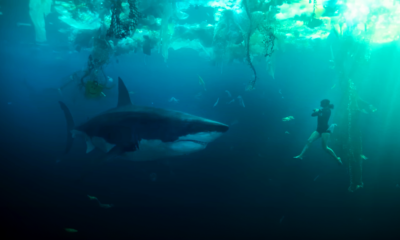
 Trailers7 days ago
Trailers7 days agoWatch the trailer for ‘Under Paris,’ the movie people are calling ‘French Jaws’ [Trailer]
-

 News3 days ago
News3 days agoThis Horror Film Just Derailed a Record Held by ‘Train to Busan’
-
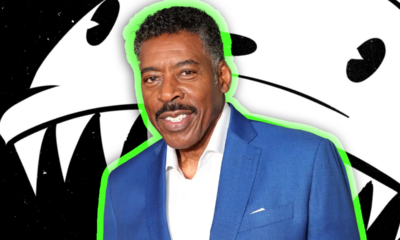
 Movies7 days ago
Movies7 days agoErnie Hudson To Star In ‘Oswald: Down The Rabbit Hole’
-
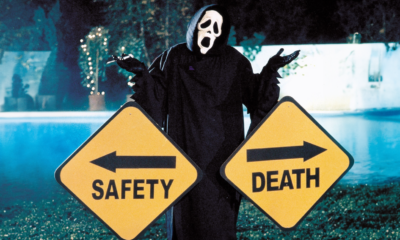
 News7 days ago
News7 days agoParamount and Miramax Team Up to Reboot the “Scary Movie” Franchise
-

 Movies3 days ago
Movies3 days agoWatch ‘Immaculate’ At Home Right Now
-

 News4 days ago
News4 days agoRead Reviews For ‘Abigail’ The Latest From Radio Silence
-

 Editorial4 days ago
Editorial4 days agoRob Zombie’s Directorial Debut Was Almost ‘The Crow 3’
-

 News3 days ago
News3 days agoMelissa Barrera Says Her ‘Scream’ Contract Never Included a Third Movie

























You must be logged in to post a comment Login